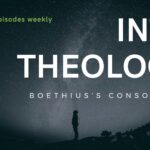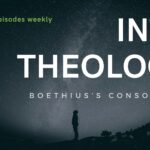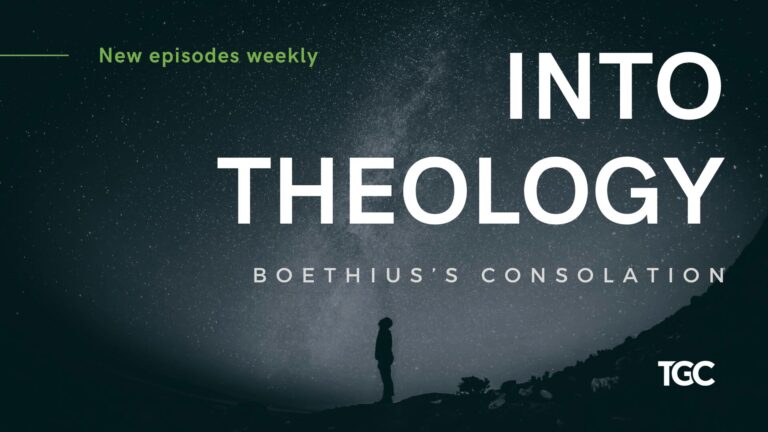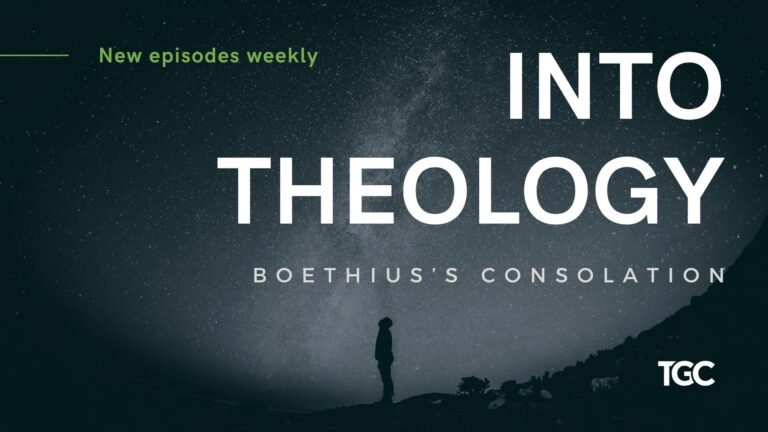After spending two years working through John Calvin’s Institutes, ten months discussing Augustine’s Confessions, and studying a number of Biblical books (Ecclesiastes, Job, Proverbs), Ian Clary and I are happy to begin a new series on Thomas Aquinas’s Summa Theologicae.
Thomas Aquinas (1225-1274) may initially seem like an odd choice for Into Theology. After all, Roman Catholics frequently use Thomas in their theological works. Yet they do the same for Augustine of Hippo and Athanasius. That various people turn to Thomas to learn may simply evince his unique brilliance.
R.C. Sproul seemed to think so. Sproul thought that Thomas Aquinas was one of the most brilliant theologians of the church. He went further and claimed, “I, for one, am persuaded that the Protestant Church owes a profound debt to Saint Thomas.”
Now I suppose that cannot be doubted. During the heyday of Reformed orthodoxy in the 17th century, students at the University of Leiden read Thomas’s Summa. This is the same communion of churches that would later publish the Canons of Dordt. In fact, reading Thomas was not uncommon. Virtually, all reformed authors did so.
One can perhaps see something of this earlier reformed interest in Thomas in Abraham Kuyper who claimed, “Thomas is the ‘doctor’, just as Augustine is the ‘pater ecclesiae’, upon whom all branches of the Christian Church still depend, and whose ecumenical significance no theologian, irrespective of [theological] orientation, can ever omit with impunity” (Kuyper, Encyclopaedie, vol. 2., 613).
While not uncritical of Aquinas, Kuyper—in ways similar to Sproul—can claim, “Whoever refuses to go back to Thomas Aquinas weakens himself as a theologian” (Kuyper, Encyclopaedie, vol. 2., 613).
This is my perspective too. I have certain critiques of Thomas Aquinas that matter, yet I appreciate his unique brilliance and ability to articulate biblical truth with clarity. For this reason, I believe reading and understanding Thomas matters today. Like Thomas, I am a Bible-guy. And he helps me understand the Bible.
So who was Thomas Aquinas?
But who was Thomas Aquinas? Let me give a short biography here to get a sense of the man himself. In the first place, Thomas spent most of his life teaching and commenting on the Bible as well as teaching non-academics. He only taught in a University for 7 years. He was a man of the Bible, although that aspect of his life sometimes gets overlooked in modern discussions of him.
Further, while he precedes the Reformational debate on Scripture and tradition or the later debates on faith and reason, Thomas affirms that the Bible is an infallible revelation of God upon which the articles of faith depend.
As Thomas explains, “arguments from human reason cannot avail to prove what must be received on faith” (ST I.Q1.A8.Rep1).
Elsewhere, Thomas writes:
“Sacred doctrine … uses the authority of the canonical Scriptures as an incontrovertible proof, and the authority of the doctors of the Church as one that may properly be used, yet merely as probable. For our faith rests upon the revelation made to the apostles and prophets who wrote the canonical books, and not on the revelations (if any such there are) made to other doctors.” (ST I.Q1.A8.Rep2)
It worth seeing that Aquinas agrees with Augustine’s statement on the unerring nature of canonical Scripture by citing him immediately after the above:
“Only those books of Scripture which are called canonical have I learned to hold in such honor as to believe their authors have not erred in any way in writing them. But other authors I so read as not to deem everything in their works to be true, merely on account of their having so thought and written, whatever may have been their holiness and learning.”
Thomas’s point is clear if one has read his first question in the Summa. The Bible is divine revelation, and it is the highest and first principle of sacred doctrine. From this revelation of God (the Bible), we can preach sacred doctrine.
And note, Thomas was a preacher. He joined, after all, the Order of Preachers. Like anyone, Thomas’s authority is a “merely probable” authority. But Scripture provides infallible truth. So one must discern and reject in Thomas what he erred in.
Likewise, Martin Luther speaks in odd ways about baptismal regeneration. Many today would find that to be an offensive doctrine. Fair enough, but a disagreement in one area does not invalidate a person’s contribution to our understanding of sacred doctrine.
I have disagreements with Thomas. Yet he undeniably names biblical truth with such clarity and beauty that he is worth reading. Granted, not everyone needs to read Thomas. We can read John Calvin, or Augustine or whomever, but what we do need is this: we must avoid anachronistic arguments such as Thomas is not reformed enough. He lived centuries before the Reformation. It is an odd and inappropriate argument.
And I find it odd that anyone would want to claim he belongs to the Roman church, and so he somehow cannot be useful for Protestants. After all, the Reformation reformed the holy catholic church. Protestants belong to that one church; the same church that Thomas belongs to.
If Thomas has problems, we must own up to them by reforming them according to the word of God.
With all that said, join us as we read selections of Thomas Aquinas’s Summa Theologicae.
The Reading Plan
Our reading plan adapts but basically follows Peter Kreeft’s Table of Contents in the Summa of the Summa. This is the edition that we will use for the podcast series. Though, you could use any edition of Thomas’s Summa that you own. Here is a link to a free version that has both Latin and English texts available.
However, if possible, we recommend starting with Kreeft’s Summa of the Summa since it brings the page count down to a manageable level, provides helpful introductory notes, is affordable, and will allow readers to interact with Thomas at deeper level since physical books are better than digital books in this way, given their material context.
- Week 1: ST I.1 Scripture
- Week 2: ST I.2 God’s Existence
- Week 3: ST I.3 God’s Nature
- Week 4: ST I.44–49, 65, 103–5: Cosmology
- Week 5: ST I.75–78: Anthropology
- Week 6: ST I.79–93: Knowing and the Soul
- Week 7: ST I-II.1–5: Happiness
- Week: 8: ST I-II.6–13: Willing
- Week 9: ST I-II.18–21 Good and Evil
- Week 10: ST I-II.26–29: Love
- Week 11: ST I-II.55–70: Virtues
- Week 12: ST I-II.71–89: Vices
- Week 13: ST I-II.90–108: Law
The Into Theology podcast has already released an introduction to Thomas Aquinas as well as two episodes that fill out Week 1: on Scripture’s nature and on its meaning. As might be obvious, these weeks might stretch out beyond thirteen in number. That should allow you to catch up on the reading.
And, in any case, we expect people can jump in whenever they want. Start half-way through or use this as a resource for your personal study. The point: pick up and read this great work of theology to help you know and love God.
Click here to see the latest episodes of Into Theology.












